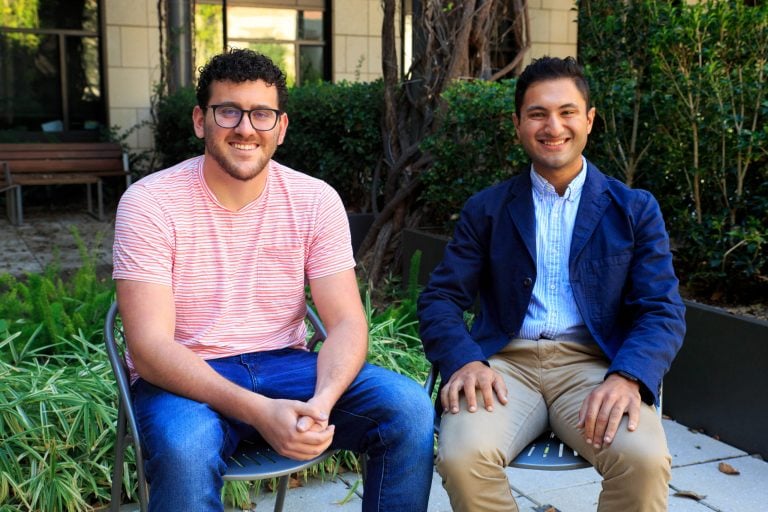During summer 2020, at the height of the pandemic, Tyler McClure J.D. ’22, David Liou J.D. ’22 MBA ’23, Justin Garfinkle J.D. ’22 and Guillaume Julian J.D. ’22 read numerous articles on the closure of small businesses.
McClure, who was helping small businesses apply for loans through the CARES Act, realized her work could be amplified if Stanford had its own initiative to help small businesses.
“Tyler was ringing the drumbeat that we should have an organization at Stanford Law School that can help provide low-cost or free legal services to businesses,” Julian said. “Over the course of the summer, we began working on it.”
The team of four then launched the Stanford Law School pro bono Small Business and Entrepreneurship Law Project. They partnered with Start Small Think Big, a nonprofit supporting small businesses with offices in San Jose and Oakland, to support under-resourced and underrepresented businesses, such as those run by communities of color and by women.
Small businesses owned by minorities were economically most at risk during the pandemic. In May 2020, 78% of minority-owned businesses — as opposed to 52% of non-minority-owned businesses — said they were at risk of closing, according to the U.S. Chamber of Commerce.
“Everything was just chaos for organizations that were the lifeblood of our communities,” Liou said. “We felt pretty helpless and wanted to do something.”
Nik Shiva J.D. ’23 and Matt Alan Cullen J.D. ’23 are now the current presidents of the project, as the original team has taken on an advisory role. Shiva previously worked with Start Small Think Big. Both Shiva and Cullen joined because of their interest in gaining experience with corporate law.
The Start Small Think Big’s clients run a variety of different businesses and come from different backgrounds. Shiva mentioned the story of a client who was providing credit repair services to mostly minority customers. The clinic pieced together a client-services agreement that could protect both her customers and her business.
“It was my first real experience of actually putting together a contract, but also it was very valuable to her,” Shiva said. “She could go forth and earn an income from a business while also feeling secure in the services she provided.”
Cullen agreed with the impact of working with these clients.
“Being able to support them while hearing their stories and seeing what they’re able to do is just so inspiring,” Cullen said.
Early on, the team also worked with a client who had grown up in a housing project run by a slumlord in New York City.
“She knew what it was like to have issues meeting that rent bill and struggling to keep a roof over her and her family’s heads,” Julian said.
As an entrepreneur, the client wanted to create an alternative model for low-income housing: tenants who lost their jobs or were going through a difficult time did not have to pay rent on time; they could fulfill their lease by helping out with building maintenance, deferring their rent or other alternatives.
The team helped her negotiate lease agreements and purchase the real estate necessary to launch this project.
“To be just a little part of that was so humbling but also rewarding,” Julian said.
Cullen and Shiva have multiple ideas on how they would like to expand the impact of the team.
They recently held a negotiation workshop so clients could be empowered to establish contracts beneficial to business growth, and they and look forward to transitioning toward in-person events post pandemic.
“A long-term goal for us is to have more direct one-on-one interactions between students and clients,” Cullen said. “Those long-lasting relationships can be valuable moving forward for students and the organization.”
This article has been updated to accurately reflect Matt Alan Cullen and David Liou‘s names, which were formerly written incorrectly. The Daily regrets this error.
